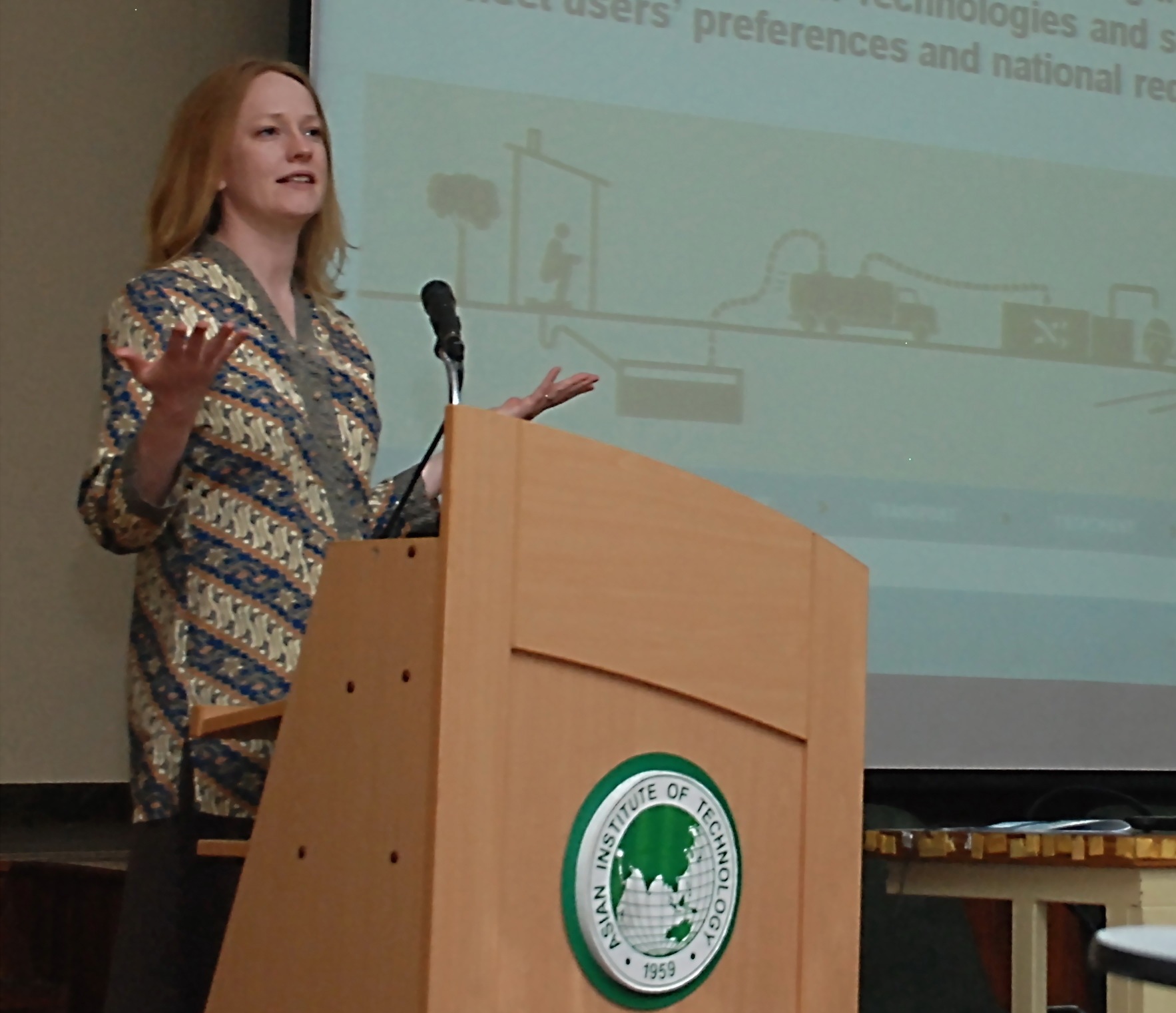The Bill and Melinda Gates Foundation (BMGF) have indicated interest in
the Asian Institute of Technology becoming a creative platform for
research on sanitation and the development of evidence-based policy to
impact developing countries in the region.
Visiting AIT on March 21-22 for exploratory discussions with officials
of the Environmental Engineering and Management field of study, Dr.
Alix Zwane, Senior Program Officer, Global Development, BMGF, said the
Seattle-based foundation would like to partner with AIT in a way that
matches each other’s strategic visions.
Welcomed to AIT by School of Environment Resources, and Development
Dean Dr. Weerakorn Ongsakul, on behalf of the Acting AIT President
Prof. IM Pandey, Dr. Zwane explained that the Foundation funds
scientific research and the development of new technologies to
influence policy.
Delivering a special lecture at AIT on March 22 titled “Strategy and
efforts to develop markets and policies for new sanitation products,”
Dr. Zwane told a large audience that the BMGF seeks the discovery and
provision of transformative technologies in order to “reinvent the
toilet” and improve the lives of millions.
To reach equitable outcomes for the “lingering sanitation crisis in
the developing world” the BMGF emphasizes a public service delivery
approach that combines new technologies with new service delivery
models to spur significant change.
Overall, the BMGF Water, Sanitation & Hygiene program focuses on
the development of tools and technologies that can lead to radical and
sustainable improvements in sanitation in the developing world.
In 2011, it awarded a US$ 5 million research grant to a scientific
team led by AIT’s Dr. Thammarat Koottatep on Sustainable Decentralized
Wastewater Management Systems. The regional project to reinvent
decentralized systems and technologies for treatment and safe disposal
of human exceta and wastewater in Thailand, Vietnam and Cambodia was
launched in Bangkok in September 2012.
“We would like to go beyond this partnership,” Dr. Zwane told senior
AIT officials. “BMGF is interested in finding the space where high
quality research aligns to policy to support equitable development
outcomes,” she said, indicating that AIT may be the right academic
institute to initiate such work.
A creative platform to reinvent the toilet would also engage other
public and private sector partners and stakeholders, Dr. Thammarat
said. “Just as Silicon Valley in the United States is synonymous with
advances in information technologies, AIT could be a catalyst for a
‘toilet valley’ right here in Asia.”
The goal would be create a nexus of ideas and funding to develop
ecosystems of alternative sanitation technologies available to people
across the Asian region, he said.


